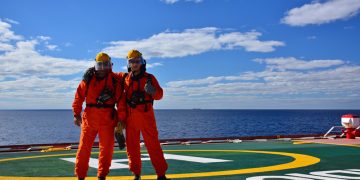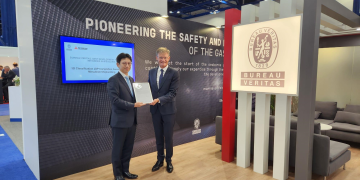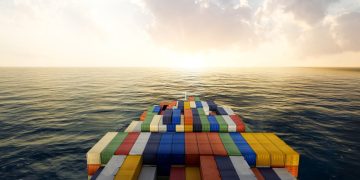A letter from Maritime UK Chair, Harry Theochari, to the new Prime Minister of the UK, Boris Johnson, highlights the importance of the sector to national prosperity, and identifies key priorities for the UK’s maritime industries. These include protecting freedom of navigation, coastal economic development, decarbonisation, improving the UK’s maritime competitiveness and developing its workforce. The letter also establishes immediate steps the sector wants to see on Brexit.
Initially, Harry Theochari asked for the UK government to do ‘everything necessary to protect merchant shipping.’ He explained that there is an urgent need for decisive action by the UK Government to apply practical measures to restore confidence in the shipping industry, and make sure that the Gulf does not become de facto closed to UK business.
[smlsubform prepend=”GET THE SAFETY4SEA IN YOUR INBOX!” showname=false emailtxt=”” emailholder=”Enter your email address” showsubmit=true submittxt=”Submit” jsthanks=false thankyou=”Thank you for subscribing to our mailing list”]
The letter also talks about Brexit. Mr. Theochar pointed out that the sectors wants the UK to leave the EU with a deal, and for this reason it has been cooperating with the government to prepare for all possibilities.
In fact, ‘significant parts of the economy are not ready for Brexit and are facing difficulties in becoming so’, the letter reads. In light of this, Maritime UK calls the government to do four very practical things as a matter of urgency to speed the preparation of UK business for Brexit:
- Reset the short-term border measures that were in place for March 29th to October 31st, so industry has more certainty on what it’s preparing for;
- Substantially step up the public information campaign on getting ready for Brexit and look at proactively issuing international trader registration numbers;
- Make sure that short-term border measures for ferry ports apply to all ports so British business has the widest possible range of options for easier post-Brexit trading; and
- Deliver the upgrades to common customs IT systems necessary for handling substantially higher volumes of declarations.
In addition, regarding free ports, they are considered as an important measure to improve productivity and trade in and around the UK’s ports, adding more value to the UK and local economies.
Free ports are one part of a broader package of reforms to development rules that industry has put forward to boost investment in coastal communities. Improved connectivity for ports is critical to realising the benefits from this investment for the rest of the UK
Mr. Theochari noted.
As a matter of fact, even modest changes would unlock an estimated additional £100m private investment by ports per year.
Another pressing issue the letter talks about is climate change. Maritime UK applauds the UK’s ambition to realise net zero carbon emissions, becoming the first major economy to do so. In addition, it is working with the government to create the Clean Maritime Plan, putting the UK at the forefront of minimising environmental impact, and crucially positioning to capitalise upon the opportunities that arise.
Moreover, Harry Theochari spoke about the International Oceans Strategy. This strategy will establish how the UK can leverage the predicted $3trillion size of the global maritime sector by 2030.
We cannot afford to be left behind, and we have a golden opportunity to build upon natural UK strengths, such as in maritime autonomy, where, as you will recall from your visit to the National Oceanographic Centre, economic gain and environmental protection are naturally fused
Finally, with UK companies operating autonomous systems across the world to help clear the oceans of plastics, marine science institutes are helping to understand how plastics travel, where they come from, and how best to remove litter.




































































